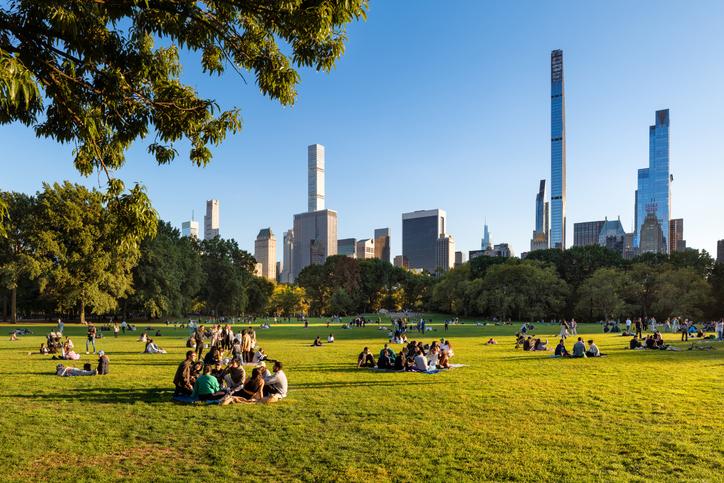The complexities of NYC rent increase laws can feel like a dizzying rollercoaster ride, leaving both tenants and property owners clutching their wallets and wondering where the brakes are. But fear not! Understanding the game’s rules empowers you to navigate this ride confidently.
In 2023, a staggering 85% of NYC renters grappled with rent increases, some facing hikes that felt like scaling Mount Everest in flip-flops. This post is your map to mastering the terrain. Knowing your rights and the regulations governing rent increases is crucial whether you’re a seasoned tenant or a new arrival.
So, buckle up as we delve into the world of rent stabilization, rent control, and the all-powerful Rent Guidelines Board. We’ll equip you with the knowledge to face any rent increase with clarity and, hopefully, a sense of control.
Types of Rent-Regulated Apartments in NYC

Just like there are different trains on the subway, there are different types of rent-regulated apartments in NYC. Understanding which category your apartment belongs to is your first ticket to clarity.
- Rent-Stabilized: If your apartment was built after February 1962 and hasn’t undergone major renovations since then, you’re likely rent-stabilized. This means your rent increases are capped by the annual Rent Guidelines Board (RGB) guidelines. Think of it as a safety net against skyrocketing rents.
- Rent-Controlled: These apartments are like vintage treasures – built before 1947 and often boasting pre-war charm. If you’re one of the lucky few to call one home, your rent is subject to even stricter regulations, often requiring specific approval from the city. Consider it a rent freeze with occasional adjustments.
- Unregulated: Not all apartments are created equal. Newer buildings or those deregulated due to various exemptions fall under this category. Here, landlords have more leeway to set rent increases, making it crucial for you to be extra vigilant and aware of your rights.
But wait, there’s a twist! Each category has its own eligibility criteria. Don’t fret, though! Resources like the NYC Rent Guidelines Board website and tenant advocacy organizations can help you verify your apartment’s status and ensure you’re riding the right rent train.
Rent Increase Guidelines Board (RGB): The Architect of Your Rent Hike
Ever wondered who decides how much your rent can jump? Enter the Rent Guidelines Board (RGB), the unsung heroes (or villains, depending on your perspective) who set the annual maximum rent increase percentages for rent-stabilized apartments.
Think of the RGB like a chef creating a recipe for rent hikes. In 2024, their latest dish offers a 3% increase for one-year leases and a 5% increase for two-year leases. But just like with any recipe, there are additional ingredients to consider.
For example, if your landlord wants to raise your rent more than the RGB guidelines, they must jump through some hoops (think of additional paperwork and approval processes). The guidelines may not apply in some situations, like major capital improvements or vacancy increases.
Understanding the nuances of the RGB guidelines and their exceptions is like having a secret ingredient – knowledge that empowers you to confidently navigate the rent increase maze.
Remember, this is just the beginning of our journey through the intricate world of NYC rent laws. Stay tuned as we explore tenant rights, negotiation strategies, and resources to protect yourself from illegal rent hikes. Stay informed, stay empowered, and let’s conquer this rent rollercoaster together!
Exceptions and Special Cases
While the RGB guidelines are the main act in the rent increase drama, there are plot twists to be aware of:
-
Capital Improvements: Think leaky pipes or cracked walls? If your landlord makes major repairs surpassing a specific cost threshold, they might be eligible for rent increases beyond the RGB guidelines. Remember, these require specific notices and approval processes.
-
Vacancy Increases: When an apartment becomes vacant, landlords have more freedom to set rent. However, there are still regulations and limitations governing such increases.
-
Specific Lease Types: Certain lease types like high-rent and luxury stabilized apartments have different rules and limitations for rent increases. Be sure to understand your specific lease type and its regulations.
Confused? Don’t fret! Resources like the Rent Guidelines Board website, tenant advocacy organizations, and even legal aid clinics can help you navigate these exceptions and understand your rights. Remember, knowledge is your sword in this battle!
Protecting Yourself from Illegal Rent Increases
Spotting an illegal rent hike can feel like finding a rogue cockroach in your kitchen – unwelcome and unsettling. But don’t despair! Here’s how to fight back:
-
Review the Notice: Your landlord must provide a specific rent increase notice outlining the proposed hike and the reason. Scrutinize it for accuracy and adherence to regulations.
-
Contact the RGB: If something feels fishy, report your concerns to the Rent Guidelines Board. They can investigate and ensure your landlord plays by the rules.
-
Know Your Rights: As a tenant, you have rights! You can refuse an illegal rent increase, demand proper documentation, and even seek legal recourse if violated.
Feeling overwhelmed? Don’t be a lone warrior! Tenant advocacy organizations like Housing Works and NYCHA Tenants Union offer legal assistance and guidance. Remember, you’re not alone in this fight!
Tips for Tenants and Property Owners: Let’s Play Fair in the Rent Game
Navigating rent increases doesn’t have to be a battlefront. Here’s how both tenants and property owners can approach it constructively:
Tenants:
-
Prepare for Lease Renewals: Research the RGB guidelines, understand your apartment’s status, and gather documentation as evidence.
-
Negotiate: Don’t be afraid to negotiate! Research fair market rents and present your case logically. Open communication can go a long way.
-
Stay Informed: Follow NYC rent regulations updates and proactively protect your rights. Knowledge is power!
Property Owners:
-
Comply with Regulations: Follow the Rent Guidelines Board and other applicable laws meticulously. Avoid unnecessary trouble!
-
Communicate Transparently: Explain reasons for rent increases honestly and provide tenants with proper documentation. Openness fosters trust.
-
Seek Guidance: If unsure about the legalities, consult legal professionals or property management associations. Remember, staying informed benefits everyone.
Ultimately, remember that collaboration and open communication are key to a mutually beneficial outcome. Both tenants and property owners have a shared stake in a stable and fair rental market.
Knowledge is Your Compass
As we reach the end of our rent-increase odyssey, remember the key takeaways:
- Understanding your apartment’s type and the applicable regulations is crucial.
- The RGB guidelines set the baseline for rent increases, but exceptions and special cases exist.
- Know your rights as a tenant and don’t hesitate to seek help if you suspect an illegal hike.
- Open communication and respectful negotiation benefit both tenants and property owners.
Staying informed and empowered is your best weapon in navigating the intricate world of NYC rent increases. Share this knowledge with your fellow dwellers, subscribe for updates, and remember – knowledge is the compass that guides you through the rent maze and towards a stable and secure home.








